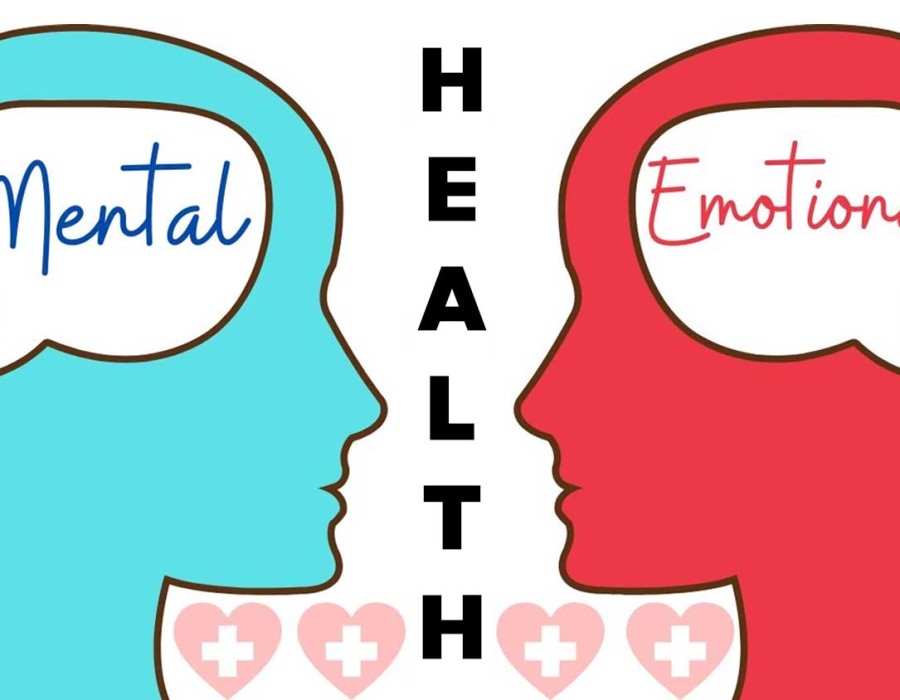When was the last time you paused to check in with yourself—not just mentally, but emotionally too? You may not realize it, but mental health and emotional health are not the same. They are deeply connected, yet they serve different purposes in your overall well-being. Understanding this connection is the first step to gaining control over your life. Let's break it down in a simple, human way.
What’s the Real Difference?
Let’s start by addressing the big question: Mental Health vs Emotional Health—what's the difference?
Mental health relates to how your brain functions—your thoughts, reasoning, memory, and how you process information. It covers conditions like anxiety, depression, ADHD, bipolar disorder, and more. It’s about your cognitive state.
On the flip side, emotional health is about how you handle your feelings. Are you able to express anger, sadness, or joy in a healthy way? Do you recognize what you're feeling? Emotional health focuses on awareness, acceptance, and management of emotions.
They’re not interchangeable—but they do work together. Poor emotional health can affect your mental state, and mental health issues can cloud your ability to process emotions.
Why It Matters: The Hidden Connection
Imagine going through a tough day at work. You're overwhelmed, but instead of letting yourself feel it, you push it down. That bottled-up stress builds over time, possibly leading to anxiety or even depression. This is where the link between mental and emotional health comes into play.
If you’re emotionally aware, you’re better at recognizing triggers and responding to them in a balanced way. That, in turn, supports your mental well-being. Likewise, stable mental health helps you analyze your emotional responses and avoid overreactions or breakdowns.
In essence:
Strong emotional health supports clear mental function. Clear mental function helps regulate emotional reactions.
Warning Signs You Might Be Overlooking
Sometimes, we ignore the signs our mind and emotions are trying to send. Here are a few red flags:
- You’re constantly irritable or numb
- You find it hard to concentrate
- You feel emotionally "flat" even when something good happens
- You avoid situations that require emotional interaction
- You self-isolate or push people away
These signs don’t always scream "crisis," but they whisper that you need help. The sooner you listen, the sooner you can act.
Taking Action: Why Evolve Psychiatry Is a Safe Step Forward
We get it—acknowledging that you need support is not easy. But here’s the truth: everyone deserves to feel balanced. And no, you don't have to figure it out alone.
At Evolve Psychiatry, we take a holistic approach that covers both your mental health and emotional health. We help you identify the subtle differences between the two, and more importantly, how to strengthen both together. Whether you’re dealing with clinical anxiety or emotional burnout, our experts meet you where you are.
It’s not about "fixing" you—it’s about guiding you to understand yourself better.
How to Strengthen Both Mental and Emotional Health
You don’t need a complete life overhaul to make meaningful changes. Here are simple, practical steps you can take today:
1. Name Your Emotions
Instead of saying “I feel bad,” ask yourself—Do I feel angry? Hurt? Embarrassed? Naming your feelings is the first step to managing them.
2. Create Mental Space
Try 10 minutes of quiet time every day. No phone. No scrolling. Just you checking in with you.
3. Talk to Someone You Trust
Whether it’s a friend, family member, or a therapist at Evolve Psychiatry, expressing your thoughts can clear mental clutter and ease emotional tension.
4. Journal Without Judging
Write down what you’re thinking and feeling. Don’t worry about grammar or logic—this is about release.
5. Recognize Patterns
If every Sunday you feel anxious about Monday, that's a pattern. Recognizing it lets you prepare and manage your response better.
Why Mental Health vs Emotional Health Isn’t a Battle—It’s a Balance
This isn’t about choosing one over the other. Mental and emotional health are like two legs of a table. If one weakens, the whole thing becomes unstable. But with the right support and a few mindful practices, you can strengthen both.
The next time you feel off—pause. Ask yourself:
- Is my mind overwhelmed?
- Are my emotions ignored or unprocessed?
Knowing where the imbalance lies is the first move toward peace.
You Deserve Balance, You Deserve Support
It’s time we stop pretending to be okay and start taking action. Understanding the link between mental health vs emotional health isn’t just smart—it’s life-changing. If you’re ready to understand yourself better, manage stress, and build resilience, Evolve Psychiatry is ready to walk with you.
This isn’t about perfection. It’s about progress. And you’re not alone.
Final Thought:
Taking care of your mental and emotional health isn’t selfish—it’s essential. The better you feel inside, the stronger and more present you become in every part of your life.
Let today be the day you start evolving—one thought, one feeling, one step at a time.





Comments